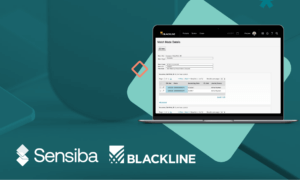A company’s first financial statement audit can be an administrative challenge. Still, effective planning and implementation tools such as BlackLine can help streamline the process, improve internal controls, and potentially reduce audit fees.
BlackLine’s MAP Framework
BlackLine and its Modern Accounting Playbook (MAP) framework help growing and mid-sized companies optimize and automate key aspects of their financial close and financial reporting processes. These can include balance sheet and income statement reconciliations, task management functionality to help the finance team remain organized and efficient throughout the close process, and transaction matching for clearing bank to general ledger transactions.
BlackLine helps companies shift their audit preparation from a manual process driven by and reliant on spreadsheets to a largely automated exercise that helps the finance team optimize its efforts to perform quality work efficiently.
Centralized Data
One of the most powerful ways BlackLine can help a company prepare for its first financial statement audit is by enabling a centralized repository for its data. Instead of financial and performance data being stored on spreadsheets, potentially in multiple locations, BlackLine offers a secure cloud-based repository that offers a single source of truth for vital information.
Advantages of Having a Single Repository
A cloud-based repository offers several advantages for the company during the close process, as well as when it prepares for its audit. Data must no longer be compiled and reformatted manually, saving valuable staff time and effort. Additionally, here are other advantages of BlackLine’s centralized data.
Ability to Select Shared Access
The company can give its auditors access to selected data within the cloud-based repository. This can optimize the audit by eliminating the time-consuming aspect of a manual audit in which the auditor requests data that the finance team has to compile and share.
Decrease Wasted Time Tracking Down Information
Storing information in a centralized repository also reduces the risk of requested information being challenging to track down. In addition to wasting time and causing frustration within the finance team, searching for missing data can increase the time the audit takes (and create a corresponding increase in audit fees).
In contrast, being able to provide information readily reduces time and increases efficiency, as well as the auditor’s ability to rely on the company’s work. This reliance, in turn, can also help the company reduce audit fees or avoid unexpected overages.
Stronger Controls
BlackLine also helps a company establish and maintain effective internal controls over financial reporting by automatically creating and enforcing key controls such as segregation of duties. For example, a preparer will not be allowed to approve his or her work, such as an account reconciliation.
These controls are vital for all companies, but building them into a financial reporting platform is especially helpful for newer companies managing vast amounts of information during their initial financial closes and audits.
Similarly, BlackLine can help the company identify areas of the balance sheet that might be classified as high risk. Designating some accounts, such as cash, as key accounts can help the company focus on those accounts by coordinating activities among different functions or adjusting due dates to ensure control activities are enforced. Automating this monitoring helps the finance team focus time and resources on other areas.
Interested in learning more? Reach out for a demo and see how BlackLine can help automate and centralize tasks within your organization’s financial close.

















